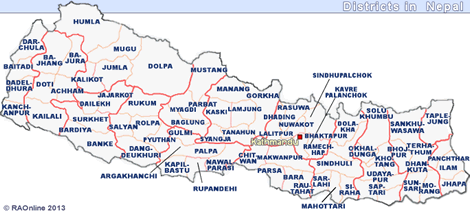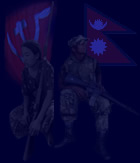|
Reports
on Nepal's Civil War
|
January
2006
| Has
diplomacy failed in Nepal? |
 |
Pro-democracy
protestors clash with police in Kathmandu
There
has been a wave of pro-democracy rallies in Nepal
A
year after Nepal's royal coup, the international community is looking increasingly
helpless in its attempts to help find a solution to the country's political
crisis.
After
King Gyanendra seized absolute power on 1 February 2005, Nepal witnessed
intense diplomatic activity on a scale never seen before.
However,
these activities seem to have produced no results as the three players
in the power struggle - the Maoist insurgents, political parties and the
king - all look equally determined to hold on to their positions.
The
key international players trying to intervene in the crisis have been the
United States, Britain and regional giant India.
 |
Full
story ... |
January
2006
| Bloody
sunrise |
 |
The
country is on red alert as the Maoists and the army go back to war.
In
the week after the Maoists refused to extend their ceasefire, the rebels
have stepped up their bombing campaign targeting government buildings.
The
rebels said they would take the war from the villages to the cities and
that is what they are doing. But all they are destroying are district education
offices.
The
army's offensive into Rukum two weeks ago now appears to have been a deliberate
attempt to provoke the rebels not to extend the ceasefire. Indeed, as soon
as the announcement on the ceasfire was made on 2 January the rangers returned
to base.
 |
Full
story ... |
November
2005
| Women
and children suffer most in conflict |
 |
Nepal
has one of the highest maternal mortality rates in the world, with an estimated
4,500 women dying yearly of pregnancy-related causes. Health care delivery
has become even more challenging for NGOs and UN agencies like UNFPA during
the current conflict, says Sultan Aziz, director of the Asia-Pacific Division
of UNFPA, who was in Kathmandu recently.
 |
Full
story ... |


|




